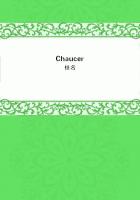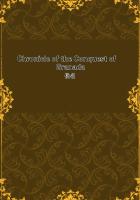Electress Dorothee, the Stepmother, was herself somewhat of a hard lady; not easy to live with, though so far above poisoning as to have "despised even the suspicion of it." She was much given to practical economics, dairy-farming, market-gardening, and industrial and commercial operations such as offered; and was thought to be a very strict reckoner of money. She founded the <italic> Dorotheenstadt, <end italic> now oftener called the <italic> Neustadt, <end italic> chief quarter of Berlin; and planted, just about the time of this unlucky dinner, "A.D. 1680or so," [Nicolai, <italic> Beschreibung der koniglichen Residenzstadte Berlin und Potsdam <end italic> (Berlin, 1786), i. 172.] the first of the celebrated Lindens, which (or the successors of which, in a stunted amdition) are still growing there. <italic> Unter-den-Linden: <end italic> it is now the gayest quarter of Berlin, full of really fine edifices: it was then a sandy outskirt of Electress Dorothee's dairy-farm; good for nothing but building upon, thought Electress Dorothee. She did much dairy-and-vegetable trade on the great scale;--was thought even to have, underhand, a commercial interest in the principal Beer-house of the city? [Horn, <italic> Leben Friedrich Wilhelme des Grossen Kurfursten von Brandenburg <end italic> (Berlin, 1814).] People did not love her: to the Great Elector, who guided with a steady bridle-hand, she complied not amiss; though in him too there rose sad recollections and comparisons now and then: but with a Stepson of unsteady nerves it became evident to him there could never be soft neighborhood. Prince Friedrich and his Father came gradually to some understanding, tacit or express, on that sad matter; Prince Friedrich was allowed to live, on his separate allowance, mainly remote from Court. Which he did, for perhaps six or eight years, till the Great Elector's death; henceforth in a peaceful manner, or at least without open explosions.
His young Hessen-Cassel Wife died suddenly in 1683; and again there was mad rumor of poisoning; which Electress Dorothee disregarded as below her, and of no consequence to her, and attended to industrial operations that would pay. That poor young Wife, when dying, exacted a promise from Prince Friedrich that he would not wed again, but be content with the Daughter she had left him: which promise, if ever seriously given, could not be kept, as we have seen. Prince Friedrich brought his Sophie Charlotte home about fifteen months after. With the Stepmother and with the Court there was armed neutrality under tolerable forms, and no open explosion farther.
In a secret way, however, there continued to be difficulties.
And such difficulties had already been, that the poor young man, not yet come to his Heritages, and having, with probably some turn for expense, a covetous unamiable Stepmother, had fallen into the usual difficulties; and taken the methods too usual. Namely, had given ear to the Austrian Court, which offered him assistance,--somewhat as an aged Jew will to a young Christian gentleman in quarrel with papa,--upon condition of his signing a certain bond:
bond which much surprised Prince Friedrich when he came to understand it! Of which we shall hear more, and even much more, in the course of time!--Neither after his accession (year 1688; his Cousin Dutch William, of the glorious and immortal memory, just lifting anchor towards these shores) was the new Elector's life an easy one. We may say, it was replete with troubles rather; and unhappily not so much with great troubles, which could call forth antagonistic greatness of mind or of result, as with never-ending shoals of small troubles, the antagonism to which is apt to become itself of smallish character. Do not search into his history; you will remember almost nothing of it (I hope) after never so many readings! Garrulous Pollnitz and others have written enough about him; but it all runs off from you again, as a thing that has no affinity with the human skin. He had a court <italic> "rempli d'intrigues, <end italic> full of never-ending cabals," [Forster, i. 74 (quoting <italic> Memoires du Comte de Dohna); <end italic>
&c. &c.]--about what?
One question only are we a little interested in: How he came by the Kingship? How did the like of him contrive to achieve Kingship? We may answer: It was not he that achieved it; it was those that went before him, who had gradually got it,--as is very usual in such cases. All that he did was to knock at the gate (the Kaiser's gate and the world's), and ask, "IS it achieved, then?"Is Brandenburg grown ripe for having a crown? Will it be needful for you to grant Brandenburg a crown? Which question, after knocking as loud as possible, they at last took the trouble to answer, "Yes, it will be needful."--Elector Friedrich's turn for ostentation--or as we may interpret it, the high spirit of a Hohenzollern working through weak nerves and a crooked back--had early set him a-thinking of the Kingship;and no doubt, the exaltation of rival Saxony, which had attained that envied dignity (in a very unenviable manner, in the person of Elector August made King of Poland) in 1697, operated as a new spur on his activities. Then also Duke Ernst of Hanover, his father-in-law, was struggling to become Elector Ernst; Hanover to be the Ninth Electorate, which it actually attained in 1698;not to speak of England, and quite endless prospects there for Ernst and Hanover. These my lucky neighbors are all rising;all this the Kaiser has granted to my lucky neighbors: why is there no promotion he should grant me, among them!--Elector Friedrich had 30,000 excellent troops; Kaiser Leopold, the "little man in red stockings," had no end of Wars. Wars in Turkey, wars in Italy; all Dutch William's wars and more, on our side of Europe;--and here is a Spanish-Succession War, coming dubiously on, which may prove greater than all the rest together.














